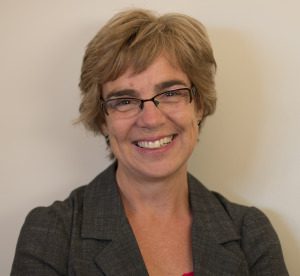

We hold our newborn in our arms. With awe and wonder, we marvel at the intricacy of this human being and the miracle of birth. We ponder all that lies ahead—for the moments and days and years that will shape this child. We ask for God’s wisdom as we guide and instruct this little one, for whom we want nothing but the best. We want to do whatever is in our ability to help this child reach the fullest potential.
This idea of “reaching potential” is filled with many thoughts, prayers and dreams. But what exactly does this expression mean, and is it even possible to reach one’s potential? Do we expect our children to be at the top of the class? Do we expect them to be at the top of the sports team? Do we expect them to become child prodigies in music, math or the arts? Or does “reaching potential” simply mean . . . to be the best possible in all areas of life? I wonder—do any of us ever reach our full potential?
Dr. Kathleen Hopkins, past executive director for the National Institute for Learning Development, wrote in her book Teaching How to Learn in a What-to-Learn Culture that the word potential implies that there is a lid or a ceiling. She suggests that perhaps propensity is a better word in that it is the limitless upward trajectory that assumes continuous improvement and possibility for change.
How can we possibly give our newborn child the opportunities that he or she needs to achieve this full potential? In a world where success is often measured by degrees, salary and social media posts, how do we help our children reach for the next height without setting unrealistic expectations? What can we, as parents and educators, do to inspire this upward trajectory?
Let’s consider these simple approaches:
- Inspire a LOVE OF LEARNING—Follow the child’s interest. Expose him or her to a variety of experiences. Read aloud every day.
- Develop CRITICAL THINKING—Ask many why and how and I wonder Discover answers together. Discuss varying opinions with an open mind.
- Mediate LEARNING—Vygotsky’s Zone of Proximal Development taught us that a learner can do so much more with the help of someone who knows just a little more than the learner does. Be that mediator. Find that mediator. The mediator just needs to know a little bit more than the learner.
- Build CONFIDENCE—Allow the child to take small steps to achieve success,developing the competence that builds confidence. Success breeds confidence.
- Be the EXAMPLE—Pursuing our own interests is the best example for our children, sharing our excitement, involving them in our struggles and successes.
- Cheer LOUDLY—Be the coach, the manager, the chauffeur and the water boy. Our children, as all of us, need all the help and cheering we can give!
Now, what if our children seem uninterested in working towards or achieving full potential? Is it even possible to get them out of the rut? Although it may seem hopeless, it’s important to start small, with baby steps. Be the silent observer and detective and watch for the signs. What sparks a conversation with a friend? What brings out a tiny sparkle in their eye?
“The propensity to learn is innate, so it has not disappeared. It remains hidden under the cloaks of misbehaviour, frustration, apathy and the terrible fear of failure. Fear and anxiety are powerful destroyers of the desire to learn” (Hopkins, 2010).
We can and should inspire our children to reach their potential and beyond, regardless of their perceived abilities or disabilities, helping them reach for the sky and beyond.
Written by Diane Geerlinks.

Diane is founder and owner of GeerLINKS Educational Therapy, bringing 25 years of educational experience through homeschooling her own 5 children, teaching children with learning disabilities, visual and auditory processing difficulties, ADHD, autism spectrum disorders, and developmental delays. Diane is passionate about helping kids learn, developing their strengths and improving their weaknesses. She loves to share her passion with others, has spoken at many conferences across Canada, and resides in Ontario.















